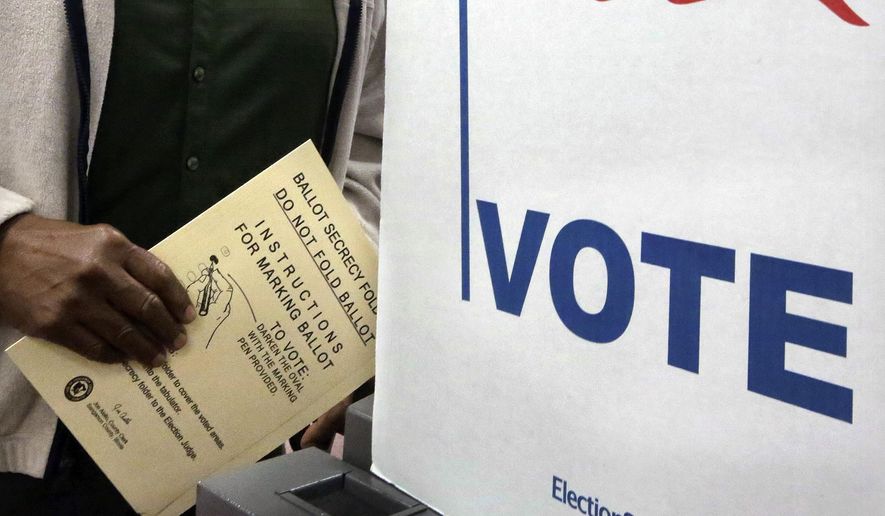OPINION:
A significant study detailing an incredible amount of voter fraud in the past two national elections was released recently, but few news organizations gave the results any notice.
The study found that noncitizens registered to vote in U.S. elections and have cast ballots, largely supporting Democratic candidates.
“Some argue that incidents of voting by noncitizens are so rare as to be inconsequential, with efforts to block fraud a screen for an agenda to prevent poor and minority voters from exercising the franchise, while others define such incidents as a threat to democracy itself,” the study’s authors wrote in The Washington Post. “Most noncitizens do not register, let alone vote. But enough do that their participation can change the outcome of close races.”
Rather than relying on anecdotal evidence on which most of the debate has been framed, the political science professors from Old Dominion University, Jesse Richman and David Earnest, analyzed the results of the Cooperative Congressional Election Study from 2008 and 2010.
From relatively large sample sizes of more than 30,000 voters from each election, the authors extrapolated results for noncitizens. The researchers determined that an estimated 6.4 percent of the 19.2 million noncitizens, who could be anyone from green card holders to illegal immigrants, voted in 2008 and 2.2 percent voted in 2010.
So what’s the big deal? These participation rates, coupled with an estimated 80 percent tilt toward Democrats, could have won the 2008 election for Sen. Al Franken, Minnesota Democrat, whose victory margin was 312 votes. Furthermore, President Obama’s close victory in North Carolina in 2008 could have come as a result of the votes of noncitizens.
“Our research cannot answer whether the United States should move to legalize some electoral participation by noncitizens,” said the professors, whose full article will appear in the next issue of Electoral Studies. “But this research should move that debate a step closer to a common set of facts.”
I hope their optimism proves accurate, but I doubt it. Writing on the same day and in the same newspaper as the survey results appeared, the Post’s Emily Badger made no reference to the research in an article about voter identification laws.
Instead, she pointed to research contending that instances of voter fraud that have arrived at the doors of the U.S. Supreme Court were small in number. But that’s because the U.S. Supreme Court rarely hears a case about voter fraud.
Ms. Badger lauded a piece by Jonathan Chait of New York Magazine, who wrote on the same day as the Old Dominion professors’ results were published.
“Voting restrictions are usually enacted by Republican-controlled states with close political balances, where the small reduction in turnout it produces among Democratic-leaning constituencies is potentially decisive in a close race,” Mr. Chait wrote, obviously ignoring some actual research on the subject.
At the same time, however, some conservatives try to downplay the extent of vote fraud in an apparent attempt to convince people that the issue isn’t to exclude minority voters.
“The hard numbers suggest that the number of voters getting locked out by voter ID laws is diminishingly small,” National Review editor Rich Lowry argued in Politico.
Mr. Lowry’s stronger argument is how often people need photo identification for activities such as driving a car, getting on an airplane, obtaining a prescription and other common tasks.
What seems clear is the conservative and liberal viewpoints on voter fraud tend to focus on anecdotes that do not adequately prove one side or the other.
But this new study about noncitizens casting election ballots should provide more accurate information for voter identification laws — if only journalists would sit down and actually read the results.
• Christopher Harper teaches journalism at Temple University. He worked for more than 20 years at The Associated Press, Newsweek, ABC News and “20/20.” He can be contacted at charper@washingtontimes.com and on Twitter @charper51.




Please read our comment policy before commenting.